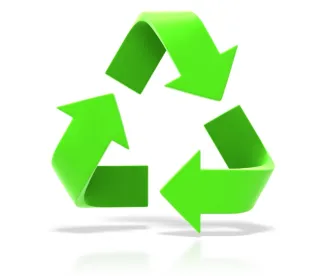On March 6, 2018, the D.C. Circuit Court of Appeals modified its 2017 ruling in American Petroleum Institute v. EPA, No. 09-1038, concerning US EPA’s Definition of Solid Waste (DSW) Rule under the Resource Conservation and Recovery Act (RCRA), which defines when hazardous recyclable materials are excluded from regulation as hazardous waste. The end result of this modified ruling is to relax the standards for legitimate (as opposed to “sham”) recycling and to extend the DSW Rule’s exclusions to spent petroleum refinery catalysts (K171 and K172 listed hazardous wastes).
In its original ruling of July 7, 2017, the Court vacated the “Verified Recycler Exclusion” added by the 2015 DSW Rule. In its place, the Court reinstated the more lenient “Transfer-Based Exclusion” from the 2008 DSW Rule, which had exempted from regulation hazardous secondary materials transferred by the generator to a third party recycler. The Court severed and preserved the 2015 DSW Rule’s new “contained” standard and emergency preparedness requirements and grafted them onto the reinstated Transfer-Based Exclusion.
The Court also struck down the new “Legitimacy Factor 4” (which required that the recycled product contain concentrations of hazardous constituents “comparable to or lower than” levels found in analogous products) as a general matter, except where expressly incorporated into a specific exclusion (like the DSW Rule’s “Generator-Based Exclusion”). However, the Court agreed to accept rehearing petitions regarding (1) whether Legitimacy Factor 4 also should be deleted from the DSW Rule’s specific exclusions and (2) whether spent catalysts should be made eligible for the reinstated Transfer-Based Exclusion, since they were not so eligible under the 2008 DSW Rule.
On rehearing, the Court ruled per curiam that the mandatory Legitimacy Factor 4 added by the 2015 DSW Rule is vacated for all DSW exclusions, including the Generator-Based Exclusion, the Transfer-Based Exclusion and all other special exclusions. In its place, however, the Court reinstated the 2008 version of Legitimacy Factor 4, which provided that the level of hazardous constituents in the recycled product compared to that in an analogous product may be “considered” by US EPA in determining whether a particular recycling operation was a sham.
Additionally, the Court ruled that spent petroleum catalysts are eligible for the reinstated Transfer-Based Exclusion, which is now subject to the 2015 DSW Rule’s “contained” standard and emergency preparedness requirements. This ruling reflected US EPA’s position that these new standards are adequate to safeguard against the pyrophoric risks posed by recycling of spent catalysts by third-party recyclers.
The D.C. Circuit Court’s recent clarification expands the scope of the DSW Rule exclusions under the Federal hazardous waste program, which currently applies in states without an EPA-authorized program. Authorized states will need to adopt the DSW Rule exemptions into their state programs before hazardous secondary material recyclers can take full advantage of them in those states.





 />i
/>i

